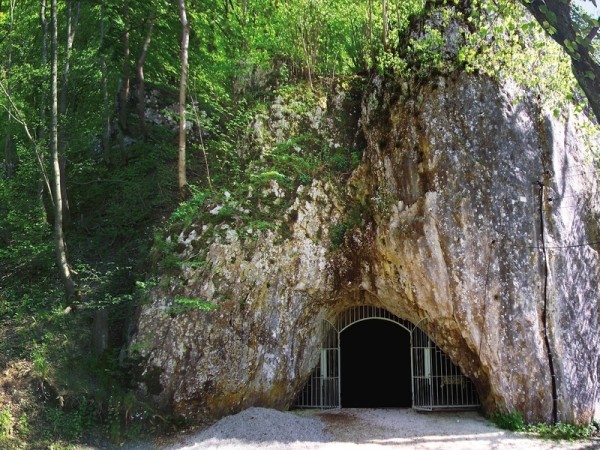By Ana Verayo, | February 08, 2016

Three human remains analyzed in this study dated to around 15,000 years ago were found in Hohle Fels cave, Swabian Jura, Germany.
Scientists just recovered new genetic evidence of how a mysterious shift in human population occurred in Europe some 15,000 years ago, as local hunter gatherers completely disappeared and were replaced by a new group from another region.
In this new study, researchers investigated DNA evidence that were taken from prehistoric human remains, specifically from bones and teeth from ancient people who lived in Europe during the Late Pleistocene into the early Holocene, for around 30,000 years.
Like Us on Facebook
Researchers from the Max Planck Institute for the Science of Human History, Germany were collecting genetic data from this era when they made a surprising discovery. According to Johannes Krause of the Max Planck Institute, the team has uncovered a completely unknown chapter of human history where a major population turnover occurred by the end of the last Ice Age.
By analyzing mitochondrial genomes taken from 35 hunter gatherers from Italy, France, Belgium, Germany, Romania and the Czech Republic, the team gathered facts and data from this lost period, as evidence were dated back to 35,000 to 7,000 years ago.
Among these DNA samples were three distinct individuals that belong to a group called "haplogroup M" which indicated that they all originate from a single lineage. This haplogroup is also apparently completely gone in modern Europeans but very commonly found in modern Asians, Australasians and Native Americans.
Scientists suggest that the missing haplogroup in other regions would mean that non African populations have slowly spread out throughout evolution to colonize other parts of the globe. This discovery also suggests that when this haplogroup existed in Europe for a specific time recently, all non Africans were dispersed in a single migration event at a specific time some 50,000 years ago.
The biggest discovery of all is that the team found enough evidence suggesting that there was indeed a major population that replaced the original hunter gatherers in Europe some 14,500 years ago, when the last Ice Age was towards its end, during a global warming event.
According to author of the study Adam Powell from the Max Planck Institute, this model is now suggesting that this was a period of extreme climate changes where the descendants of the hunter gatherers who survived through the last Ice Age were replaced by another population from another region.
Further investigation and studies will be the next step for researchers to get a clearer idea of European genetics in this period that could link why this huge population change occurred.
This new study is published in the journal, Current Biology.
-
Use of Coronavirus Pandemic Drones Raises Privacy Concerns: Drones Spread Fear, Local Officials Say

-
Coronavirus Hampers The Delivery Of Lockheed Martin F-35 Stealth Fighters For 2020

-
Instagram Speeds Up Plans to Add Account Memorialization Feature Due to COVID-19 Deaths

-
NASA: Perseverance Plans to Bring 'Mars Rock' to Earth in 2031

-
600 Dead And 3,000 In The Hospital as Iranians Believed Drinking High-Concentrations of Alcohol Can Cure The Coronavirus

-
600 Dead And 3,000 In The Hospital as Iranians Believed Drinking High-Concentrations of Alcohol Can Cure The Coronavirus

-
COVID-19: Doctors, Nurses Use Virtual Reality to Learn New Skills in Treating Coronavirus Patients







